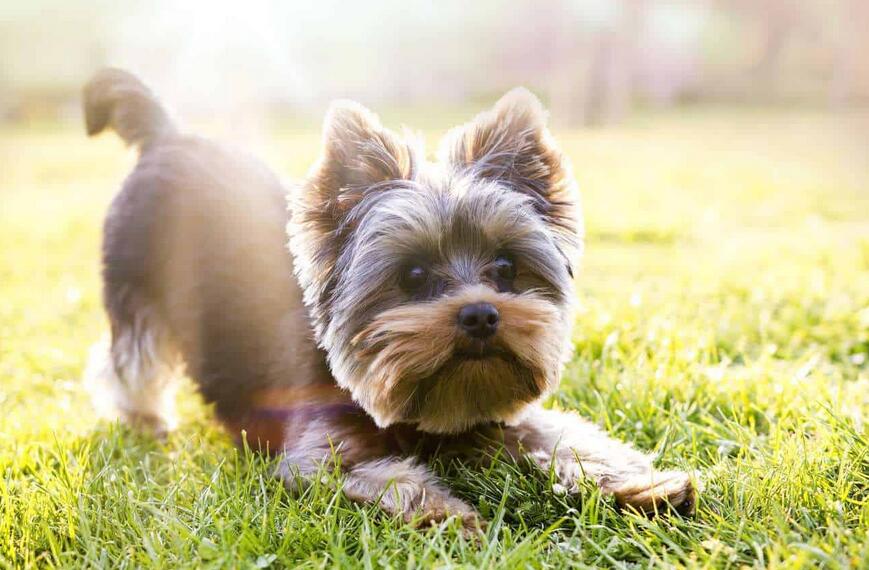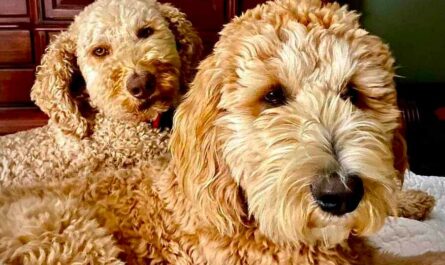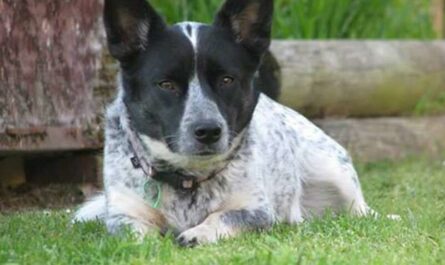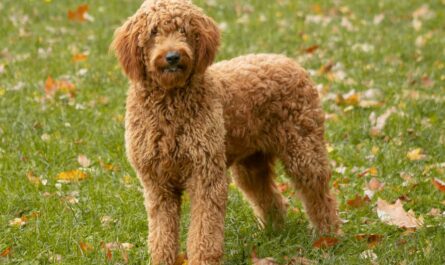If you’re a dog lover, you’ve probably heard of Yorkshire Terriers. They’re a small breed of dog known for their feisty personalities and adorable looks. But have you ever heard of White Yorkshire Terriers? These gorgeous pups are a rare and unique variation of the traditional Yorkshire Terrier breed, and they’re quickly gaining popularity among dog enthusiasts.
With their fluffy white coats and charming personalities, White Yorkshire Terriers are a sight to behold. They’re the perfect addition to any family or individual looking for a loyal and loving companion. So, if you’re considering getting a pet and want something a little different, a White Yorkshire Terrier might be the perfect choice for you. Read on to learn more about these adorable dogs and why they’re becoming a favorite among dog lovers everywhere.
What are White Yorkshire Terriers?
White Yorkshire Terriers are a breed of small, cute, and energetic dogs. They are a part of the “Toy Group” of dogs, and their average life span is 12-15 years. White Yorkshire Terriers are known for their bright, silky white coat, and they have a perky, lively attitude. They are great family pets and are very loyal to their owners.
White Yorkshire Terriers weigh an average of 7-8 pounds and have a height of 7-8 inches. They are active and require daily exercise, as well as mental stimulation. They also need regular grooming to prevent their coat from matting.
White Yorkshire Terriers are highly trainable and excel in obedience and agility sports. They are also very intelligent and love to learn new tricks. They make great watchdogs, as they are alert and will alert the family if something is amiss.
White Yorkshire Terriers are friendly, outgoing, and love to be the center of attention. They do well with other pets but can be territorial and need socialized early. They are affectionate and loyal and make wonderful companions for people of all ages.
What is the origin of White Yorkshire Terriers?
The White Yorkshire Terrier is a small breed of dog that originated in Yorkshire, England, during the 19th century. They were originally bred as ratters and to accompany coal miners in the Yorkshire region.
The White Yorkshire Terrier was created by crossing the Black and Tan Terrier with the Maltese, Skye Terrier, and Dandie Dinmont Terrier.
This created a small, white dog with a unique long coat. The breed was officially recognized by the American Kennel Club in 1885 and has been popular with pet owners ever since.
Characteristics of white Yorkshire terriers
- Coat: White Yorkshire terriers have a long, silky single coat that is water-resistant and hypoallergenic. Their coat is usually around 4-7 inches long and can be either straight or wavy.
- Color: White Yorkshire terriers have white fur with black or brown markings on their face.
- Size: White Yorkshire terriers are small dogs, typically between four and seven pounds.
- Temperament: White Yorkshire terriers are energetic, loyal, and affectionate dogs. They are intelligent and alert, making them good watchdogs.
- Activity Level: White Yorkshire terriers are active dogs, requiring daily exercise and plenty of mental stimulation.
- Health: White Yorkshire terriers are generally healthy, but they can be prone to skin problems, eye infections, and dental problems.
- Grooming: White Yorkshire terriers require regular grooming, brushing, bathing, and trimming.
- Life Expectancy: White Yorkshire terriers typically have a lifespan of 12-15 years.
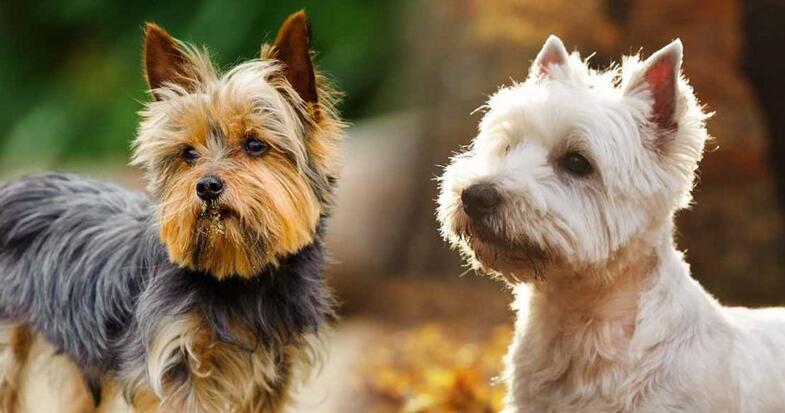
Types of white Yorkshire terriers
A white Yorkie can mean a dog with all-white fur without any other color mixture. Yet, there are some Yorkshire terriers with little or partial white on their coats as a result of diverse crossbreeding.
Finding a full-white Yorkie is extremely difficult due to its scarcity. However, considering other Yorkie with some white color on the fur is also a good idea to own such a lovely and gorgeous dog.
1. Parti Yorkie
This purebred Yorkshire Terrier has three primary colors on the coat: black, white, and tan. The Parti can be full-white and black on the body, with some tan on the face; the body can be covered in black, with tans on the face; or some dogs have tan on their ears with a white coat and black face.
Indeed, you never find a Parti Yorkie with an entirely white body because their fur always contains other color combinations (two or three colors).
2. Albino Yorkie
Albino is the only Yorkshire terrier to have full-white fur due to albinism. When you accidentally come across an Albino Yorkie, you can be surprised at its pink color on the skin, nose, footpads, and white hair. It is different from other white dog breeds that we often witness.
3. Biewer Yorkie
Although two German breeders introduced the Biewer Yorkie in the 1980s, it was not until 2021 that the AKC recognized it as a breed. It is a tri-color dog with a combination of Black tan, blue tan, or Chocolate tan. However, a Biewer Yorkie still has a little white on the chest and legs; its face contains black and tan colors.
4. Morkie Yorkie
This type of dog is a mixture of Yorkshire terriers and Maltese. Hence, the Morkie Yorkie inherits the main appearance characteristics of these breeds: black, black, and tan from the Yorkshire Terrier and brown, tan, and solid white from the Maltese.
How much does a white Yorkshire terrier cost?
Because the Yorkshire terrier is a favorite of the nobility, the cost of owning one is significantly higher than that of other breeds. Check out the following table to see how much a Yorkie costs:
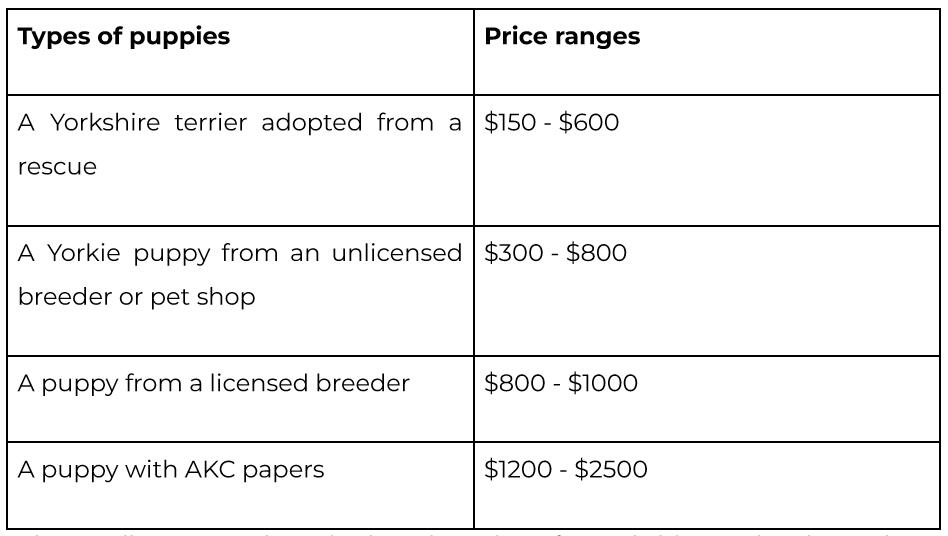
What matters here is that the price of a Yorkshire terrier depends on various factors such as age, breeder reputation, coat colors, warranties, and certificates.
1. Age
A puppy is often available for purchase at a higher price than an adult Yorkie. The simple reason is that many people prefer raising a puppy due to their loveliness and suitability for children and family members. Thus, the price of acquiring a puppy Yorkie is often much more competitive than that of an adult.
2. Breeder reputation
Puppies with recognition from the AKC are more valuable than others because they are purebred terriers carefully selected. Furthermore, if you want to purchase a Yorkie from a documented champion breeder, you must pay an extremely considerable amount.
3. Coat color
This is one of the vital factors in determining how much it will cost to own a Yorkshire terrier. The price of Yorkies with a standard coat color that meets the requirements of the AKC is higher than for others with mixed colors.
However, the white Yorkie is quite hard to find; hence, the price of this dog breed cannot be precisely estimated. You will need more time and effort to seek a white Yorkie from breeders or local shelters.
4. Warranties and certificates
These documents of the AKC are evidence of the Yorkshire purebred status and health condition. Professional breeders usually register their Yorkies with the AKC to increase their market value.
The costs mentioned are simply expenses for owning a Yorkie puppy, but the variable costs of raising a terrier make you think. We list some typical expenses here for you to take an overview:
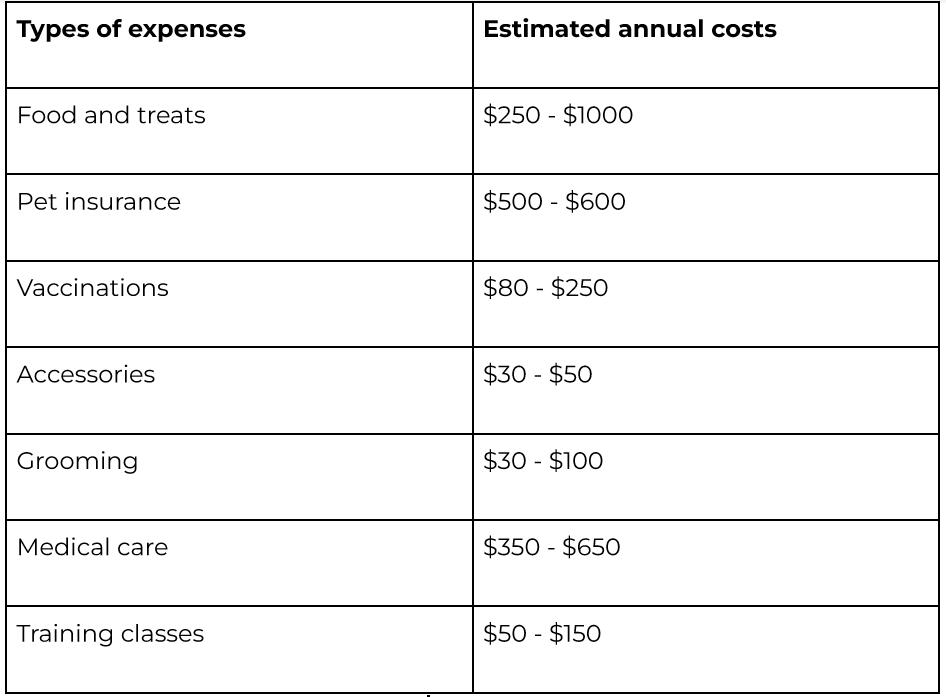
How to take care of white Yorkies?
A Yorkshire terrier is raised as a pet at home; hence, caring for them daily is not a complicated task. Read some of the following tips for getting everything done smoothly.
1. Nutrition
You do not need to prepare complex food for the Yorkshire dog. You can feed them whatever you eat daily, such as vegetables and meat. It would be better if they were provided with healthy food to avoid health issues.
If you can afford more, add dry nuts, chicken, beef, or lamb to the menu. But it should be noted that Yorkshire often has teeth and gums problems, so brushing their teeth every day is necessary.
Nutrient-rich foods that need to be added to the daily menu of a Yorkshire dog:
- Protein builds more muscle and stronger bones
- Carbohydrate helps dogs grow quickly and prevent many diseases
- Fat improves the quality of the coat and makes the coat shiny and smoother
2. Health
There are three types of health problems that Yorkies often get during their lifespan: genetic diseases, congenital diseases, and issues acquired during growing up. Some of the Yorkies’ common health problems include low blood sugar, dental disease, respiratory disease, and allergies.
To protect your Yorkies from health issues, try to vaccinate them fully early and make regular checkups to monitor their health quickly. You should provide them with a nutritious daily menu to motivate their body development and let them exercise or practice gentle exercises.
3. Body care
The coat of the Yorkshire Terrier has only one layer that is long, smooth, and straight. However, it is pretty soft and easily tangled, so you must patiently groom the Yorkshire dog daily to keep the coat shiny and clean.
In addition, you need to pay attention to trimming the dog’s long hair to conveniently clean the areas of the belly, tail, and facial hair.
4. Training and exercising
Despite its small body, the Yorkshire terrier is a brilliant and fearless dog. Besides, Yorkshire dogs are very active and full of energy, so they need regular exercise to stay healthier. You should spend about 30 minutes walking with your dog daily or let them practice more intense exercises like running or throwing.
Common Questions:
1. Does the AKC recognize white Yorkies?
Yes, the American Kennel Club (AKC) does recognize white Yorkies! White Yorkshire Terriers, commonly known as white Yorkies, are a variation of the traditional black and tan Yorkshire terriers. While the traditional version is the most common, white Yorkies have been accepted by the AKC as an official color variation of the breed.
2. Are white Yorkies good for seniors?
White Yorkies make wonderful companions for seniors. They are small, intelligent, and loyal dogs that can form strong bonds with their owners. They don’t need much exercise, so they are a great fit for seniors who cannot keep up with a more active breed.
They also make great watchdogs, as they are alert and easily trained. White Yorkies are a great choice for seniors looking for an obedient, affectionate, and low-maintenance pet.
3. What are the grooming requirements for a White Yorkshire Terrier?
First, the White Yorkshire Terrier should be brushed daily with a soft brush to remove tangles or mats. This breed is also prone to shedding, so it is important to brush out any excess fur. It is also important to regularly trim the coat from the eyes and muzzle to keep it looking neat and tidy.
In addition to brushing, the White Yorkshire Terrier should also be bathed regularly. A mild, hypoallergenic shampoo should be used, and the coat should be rinsed thoroughly. The ears should also be cleaned with a damp cloth and ear cleaner to prevent the buildup of wax and debris.
Finally, the nails should be trimmed every few weeks with a nail clipper. The nails should be cut short but not too short to avoid causing discomfort or injury. Additionally, the teeth should be brushed several times weekly to remove plaque and tartar buildup.
Final thoughts
A white Yorkshire terrier is worth buying and becoming a family member in your house. I hope this blog post brings you helpful information to prepare for raising a Yorkie in the future!

